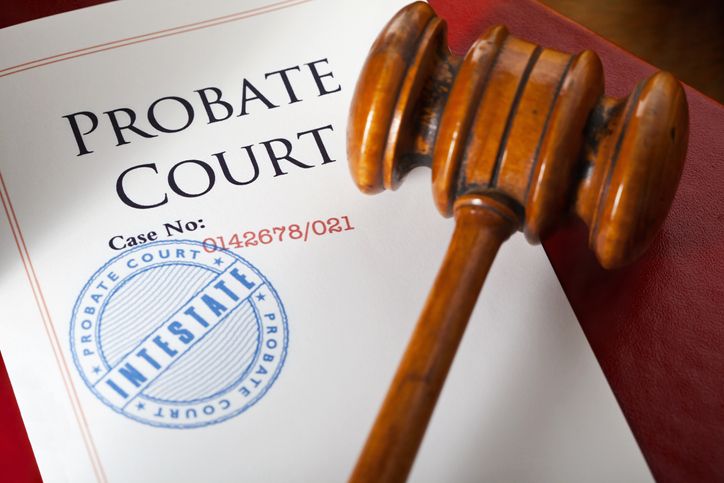Probate can put your beneficiaries through a dragged-out process that could cost money, make your estate public and produce more anxiety. If you want to protect your estate from probate in Minnesota, and streamline asset distribution for your heirs, here are a few things you can do.
An financial advisor can help you create an estate plan for your specific needs.
What Is Probate?
Probate is the process by which a court administers a person’s will after death. The primary purpose of probate is to ensure that the deceased person’s debts are paid and that their remaining assets are distributed to the rightful heirs or beneficiaries. If the person dies without a will (also known as intestate), a probate judge implements the process using the state’s intestacy laws.
Here are six common steps that are typically taken during the probate process:
- Filing a petition: If the deceased created a will, the document names an executor to carry it out. The executor files a petition in court to start the process of asset distribution. The petition includes critical details from the will, such as the heirs, beneficiaries and assets.
- Communication with heirs and creditors: The probate court then notifies heirs, beneficiaries and creditors of the deceased’s death. Doing so helps every interested party understand what to expect and gives them the ability to dispute the will.
- Identification and valuation of assets: The executor takes inventory of the deceased person’s assets, including real estate, bank accounts, investments and personal belongings. Understanding the value of the estate allows the court to transfer assets the way the will expresses.
- Satisfying debts and taxes: Creditors and governmental bodies take precedence over beneficiaries when the executor distributes assets. As a result, the first order of business is to pay outstanding debts and taxes the deceased owed when they passed away. The executor will liquidate assets if necessary to satisfy these obligations. Remember, some assets, such as life insurance policies, aren’t up for grabs for creditors regardless of the debt.
- Distribution of assets: Once the executor settles any debts, taxes and administrative expenses are paid, they transfer the remaining assets to the beneficiaries of the will. State laws direct this process if there is no will. In Minnesota, dying intestate means beneficiaries receive your assets in the following order of priority: your spouse, children, parents and siblings. In any case, the probate judge directs the process to ensure the executor follows protocol.
- Final accounting to all parties: After distribution, the executor gives a final accounting to the beneficiaries and the probate court. This document is a summary of who received assets and in what amounts. It also shows the fees and expenses the estate paid for funeral expenses, appraisal fees, court fees, and so on. The court reviews the final accounting for errors and closes the estate to end the process.
Why Should You Avoid Probate in Minnesota?

Probate only occurs if the deceased didn’t set up a trust or use assets that inherently bypass the probate process. Here are five common reasons why avoiding probate is advisable:
Cut Costs
The probate process can be expensive because of legal fees, court costs and executor fees. These expenses accumulate and reduce the overall value of the estate. Furthermore, a dispute can make attorney fees skyrocket, taking chunks out of the estate and leaving less for heirs.
Beneficiaries Receive Assets Quicker
Probate in Minnesota can take six to 18 months to complete. Remember, the longer the process, the longer beneficiaries wait to receive their inheritance. This drawback creates an undesirable gap between when the deceased person passes away and when their heirs receive the wealth set aside for them.
Fewer Disputes
The probate process is a public proceeding, and the court’s involvement may lead to disputes among family members or other potential heirs. Challenges to the will or disagreements over asset distribution can arise, leading to conflicts. Beneficiaries can’t receive assets until the court addresses each dispute.
Maximize Privacy
Probate proceedings publicize the deceased person’s assets, debts and beneficiaries. For individuals who value privacy, this lack of confidentiality can be a concern. On the other hand, private asset distribution through a trust eliminates the spotlight of publicity.
Ensure Desired Asset Distribution
Probate laws and intestacy rules can dictate how the executor distributes assets. In addition, oversight and rulings from probate judges influence how the executor handles your will. On the other hand, a trust puts these decisions solely in the hands of your selected trustee. This way, disputes and legal arguments can’t overturn your intentions.
How to Avoid Probate in Minnesota
Here are five common ways to bypass probate in Minnesota with the following strategies:
Revocable Living Trusts
A living trust is a legal entity you create to hold and manage your assets. The person creating the trust (grantor) can also serve as the trustee, maintaining control over the assets during their lifetime. The living trust document outlines how the assets are managed during the grantor’s lifetime and specifies the distribution of assets upon death.
Upon the grantor’s death or incapacitation, a successor trustee takes over and distributes the assets without going through probate. Living trusts are also modifiable, so you can change them when major life changes occur.
Monetary Gifts
Individuals can gift money to beneficiaries during their lifetime. By reducing the size of your estate through gifts, you leave fewer assets for probate. Specifically, you can give $17,000 per person in 2023 and $18,000 in 2024 without incurring gift tax consequences. This limit applies separately between you and a spouse, meaning you can effectively double the gift amounts if you’re married.
Because Minnesota exempts estates worth $75,000 or less from probate, giving money could take you under this threshold. However, if you have assets that you don’t want to liquidate until after you pass away, this strategy alone won’t be enough to avoid probate.
Joint Property Ownership
Joint ownership in Minnesota automatically confers rights of survivorship if one person passes away. Probate isn’t involved in joint ownership (also called joint tenancy), meaning you can pass on real estate, bank accounts, vehicles and other valuable property outside of court proceedings.
Payable-on-Death (POD) Accounts
Some financial accounts, including bank accounts and certificates of deposit, have optional payable-on-death (POD) designations. A POD designation appoints a person to receive the funds automatically upon the account holder’s death. The beneficiary cannot access the funds during the account owner’s lifetime but receives them quickly and directly after the owner’s death.
Accounts With Beneficiaries
Some financial tools provide beneficiary designations for account holders. For instance, life insurance accounts list beneficiaries who inherit the death benefit when the account owner passes away. These accounts are exempt from probate.
Bottom Line

Probate directs the deceased’s asset distribution when you don’t use trusts, joint ownership and beneficiary accounts to organize your estate. In addition, probate can cost more over the long haul than the initial expenses of planning your estate, resulting in a smaller inheritance for your heirs. For this reason, it’s recommended to avoid probate through careful planning and implementation of strategies that match your circumstances and preferences.
Tips for Avoiding Probate in Minnesota
- A financial advisor can help you create an estate plan for your specific needs. Finding a financial advisor doesn’t have to be hard. SmartAsset’s free tool matches you with up to three vetted financial advisors who serve your area, and you can have a free introductory call with your advisor matches to decide which one you feel is right for you. If you’re ready to find an advisor who can help you achieve your financial goals, get started now.
- State regulations differ for distributing wealth to the next generation. If you live in Minnesota, it’s advisable to familiarize yourself with the state’s inheritance laws so you can create an estate plan that complies with the related regulations.
Photo credit: ©iStock/stocknshares, ©iStock/Sladic, ©iStock/stocknshares